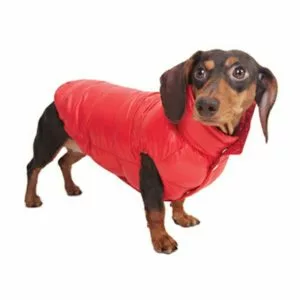Is there anything you can do to stop your dog from snoring?
Snoring! It is one of those things that sounds like a minor inconvenience when talked about, but that in reality can really make a serious dent in your quality of life if someone else’s snoring stops you from getting to sleep. Anyone who sleeps with a snoring partner will know all about this, but one thing that many dog owners will tells you as well is that a snoring dog is often little better!
If your dog’s snoring is interfering with your own rest or if you are worried about whether or not their snoring might indicate a problem that can be resolved or should be investigated, help is at hand. In this article, we will share some tips on things to try that might help to stop or ease your dog’s snoring.
What sort of dogs are apt to snore?
Any dog might be a snorer, and the chances of your dog snoring rise exponentially as they get older, or if they put on weight. However, certain breeds of dog are much more likely to snore the night away than others, even when you’re talking about younger dogs of the breed and those that are perfectly fit and healthy. These tend to be the brachycephalic dog breeds- pugs, French bulldogs, English bulldogs and so on.
That is because their short, flat-looking faces mean that they do not have as much room in their muzzles for their airways and the other internal structures of the mouth and nose, which can lead to snoring when asleep, as well as often noisy breathing and a lot of snuffling and snorting when awake too!
Whilst this can often be quite endearing, if your sleeping dog sounds like a revving engine and it’s driving you to distraction, all bets are off.
But before you start pricing up those high-end earplugs and consider relegating your dog to a soundproofed room at night, why not check out our suggestions of five things to consider that might ease or stop your dog’s snoring altogether.
Have them health checked
Whether your dog has snored from the time when they were very young or if the snoring is a relatively recent development, it is definitely worth having them checked out by your vet, to make sure that the snoring is not actually a health problem in disguise.
This is especially important for brachycephalic dog breeds of the types mentioned above-whilst all dogs of these types tend to be a little snuffly and commonly prone to snoring, in some brachycephalic dogs, the flatness of their faces and the shortness of their airways can actually present a risk to their ability to get enough air and breathe normally, but this can often be corrected with surgery.
Keep them at a healthy weight
Being overweight can have a significant impact on your dog’s health in a whole range of different ways, and if your dog has only begun snoring relatively recently, it is worth eyeing them up critically to see if they might have gained a few pounds.
A dog that is overweight is much more likely to snore than a healthy weight dog, and so simply putting your dog on a manageable, steady diet can sometimes resolve the issue.
Change their bed
The position that your dog sleeps in can sometimes lead to snoring, which might not otherwise occur if they lay in a different position. While you cannot force your dog to pick a different sleeping position, choosing a different type of bed might help you to achieve this naturally, such as if you buy a firm, orthopaedic bed, or something with a pillow or support for the dog’s head and back.
Have them tested for allergens
All sorts of different allergens can affect dogs, from environmental ones like pollen to ingredients in their food, and much more. A dog that suffers from allergies will be much more likely to snuffle and snore than others, and so having your dog tested for the markers of allergenic sensitivities and then getting their allergies under control will often prove to be the right solution.
Don’t smoke around your dog
Finally, as well as allergens that might trigger an adverse response in your dog, dust, mould and general grime is not conducive to good health either, and if your house (or even just your dog’s bed or the room that they sleep in) is dusty or not well kept, this too can lead to snoring.
However, the biggest environmental threat to your dog’s respiratory health is smoke, in the form of second and third hand smoke, both of which can have a negative impact on your dog’s health.
While everyone is familiar with second hand smoke, third hand smoke is something that is less well known about, because it only really affects pets-this is the type of ingestion of tobacco that comes about from your dog’s exposure to a smoky environment and then grooming themselves, which means that they then ingest the toxins that they have licked off their coat.
Smoking around your dog or in your dog’s home can greatly exacerbate existing health conditions such as canine asthma, as well as making your dog uncomfortable-not to mention potentially leading to more serious health problems down the line-so make your dog’s home a no smoking zone if you want to get a restful night’s sleep!











Leave a reply
You must be logged in to post a comment.